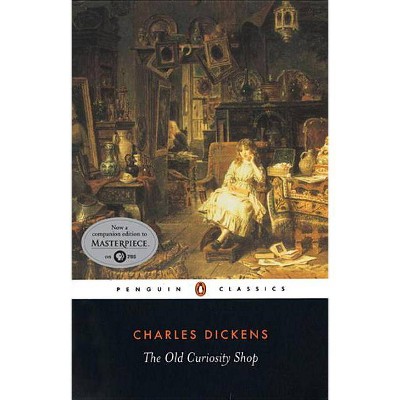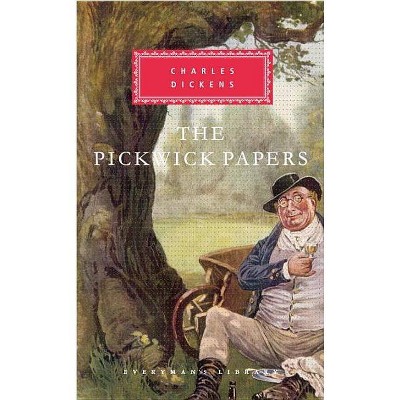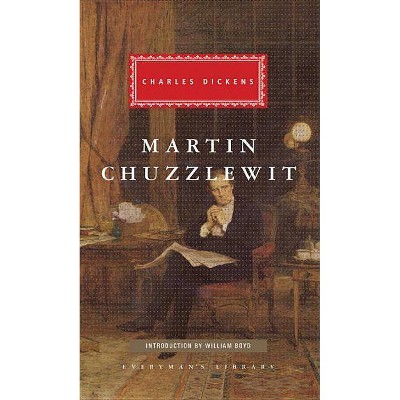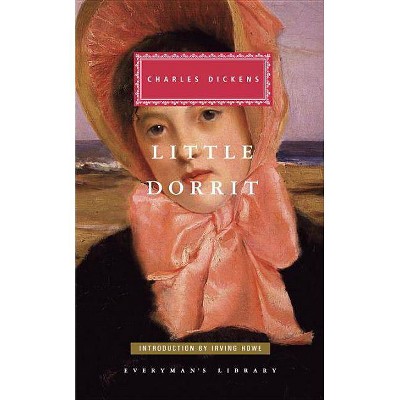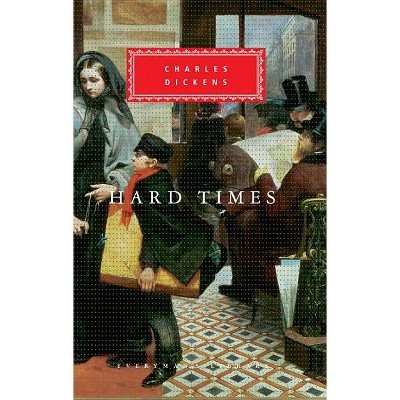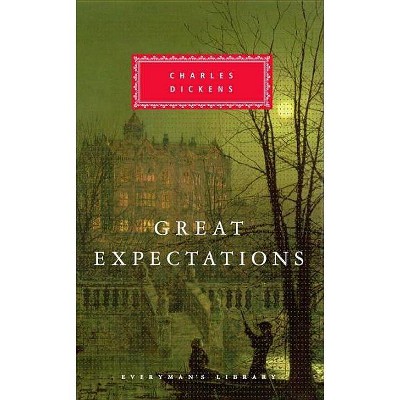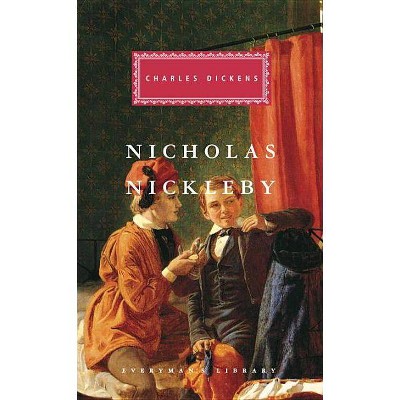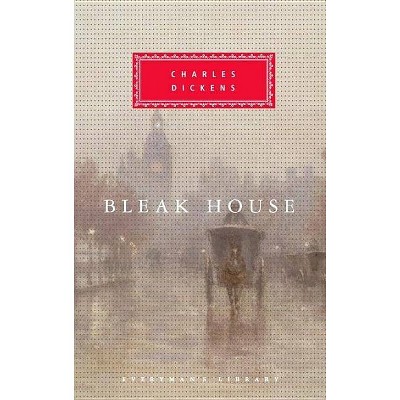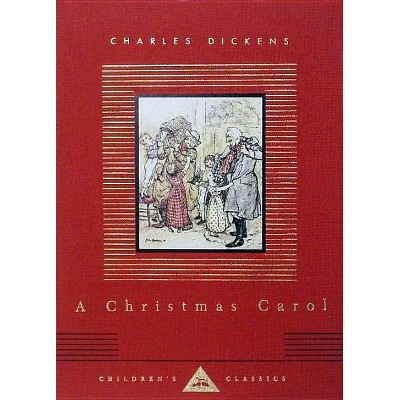The Old Curiosity Shop - (Everyman's Library Classics) by Charles Dickens (Hardcover)
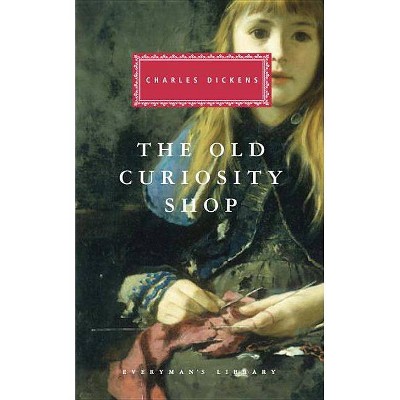
Similar Products
Products of same category from the store
AllProduct info
<p/><br></br><p><b> About the Book </b></p></br></br>Includes an earlier introduction by G.K. Chesterton (p. 559-569). <p/><br></br><p><b> Book Synopsis </b></p></br></br><p>Charles Dickens's story of selfless Little Nell and her ailing grandfather and their persecution by the magnificently malignant villain Quilp has seized the imaginations and wrung the hearts of generations of readers. <p/> Dickens's talent was superabundant in every way: in his dramatic force and his massive productivity, in his almost surreal comic power, in his compassion and thirst for justice, and in the imaginative pressure he brought to bear on even the most incidental of his characters. The delightfully various figures in <i>The Old Curiosity Shop </i>range memorably from jaunty Dick Swiveller and his little half-starved Marchioness to the hard-hearted siblings Sampson and Sally Brass, jovial Mrs. Jarley, devoted Kit Nubbles, the hunchbacked Daniel Quilp, and, of course, tragic Little Nell herself. Dickens's depiction of the fate of his main characters is famously harrowing and unfailingly suspenseful, but not the least of its charms is that it is embellished with a supporting cast of figures as grotesque and colorful as anything in the Old Curiosity Shop itself. <p/>This edition reprints the original Everyman's preface by G. K. Chesterton and features seventy-five illustrations by Cattermole and Phiz.<br></p><p/><br></br><p><b> From the Back Cover </b></p></br></br>The Old Curiosity Shop (1841), with its awesomely malignant villain, Quilp, and its harrowing depiction of the fate of his victims, Little Nell and her grandfather, was for its initial Victorian readership--and remains for us today--a richly representative example of his genius.<p/><br></br><p><b> About the Author </b></p></br></br>Charles Dickens was born in a little house in Landport, Portsea, England, on February 7, 1812. The second of eight children, he grew up in a family frequently beset by financial insecurity. At age eleven, Dickens was taken out of school and sent to work in London backing warehouse, where his job was to paste labels on bottles for six shillings a week. His father John Dickens, was a warmhearted but improvident man. When he was condemned the Marshela Prison for unpaid debts, he unwisely agreed that Charles should stay in lodgings and continue working while the rest of the family joined him in jail. This three-month separation caused Charles much pain; his experiences as a child alone in a huge city-cold, isolated with barely enough to eat-haunted him for the rest of his life. <p/>When the family fortunes improved, Charles went back to school, after which he became an office boy, a freelance reporter and finally an author. With <i>Pickwick Papers</i> (1836-7) he achieved immediate fame; in a few years he was easily the post popular and respected writer of his time. It has been estimated that one out of every ten persons in Victorian England was a Dickens reader. <i>Oliver Twist </i>(1837), <i>Nicholas Nickleby </i>(1838-9) and <i>The Old Curiosity Shop </i>(1840-41) were huge successes. <i>Martin Chuzzlewit </i>(1843-4) was less so, but Dickens followed it with his unforgettable, <i>A Christmas Carol </i>(1843), <i>Bleak House </i>(1852-3), <i>Hard Times </i>(1854) and<i> Little Dorrit </i>(1855-7)<i> </i>reveal his deepening concern for the injustices of British Society. <i>A Tale of Two Cities </i>(1859), <i>Great Expectations </i>(1860-1) and <i>Our Mutual Friend </i>(1864-5) complete his major works. <p/>Dickens's marriage to Catherine Hoggarth produced ten children but ended in separation in 1858. In that year he began a series of exhausting public readings; his health gradually declined. After putting in a full day's work at his home at Gads Hill, Kent on June 8, 1870, Dickens suffered a stroke, and he died the following day.
Price History
Price Archive shows prices from various stores, lets you see history and find the cheapest. There is no actual sale on the website. For all support, inquiry and suggestion messages communication@pricearchive.us
